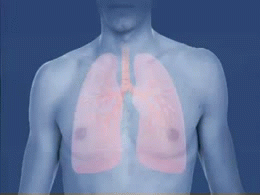The National Institute of Health awarded a five year, $7 million grant to Dr. Monica Kraft at the University of Arizona College of Medicine – Tucson. The funding will support a research study titled, “Dysfunction of Innate Immunity in Asthma,” which will seek to improve our understanding of mediators that help control lung inflammation. This in turn may lead to improved therapies for reducing severe asthma attacks.
Dr. Kraft is an internationally renowned physician-scientist who specializes in transitional asthma research at both the UA College of Medicine-Tucson and the UA Health Sciences Asthma and Airways Disease Research Center. She is chair of the UA Department of Medicine and a member of the BIO5 Institute, where the analysis will be conducted.
Why is this study important?
Because according to the Asthma and Allergy Foundation of America:
- Each day, ten Americans die from asthma, that’s 3,630 deaths each year.
- About 24 million Americans have asthma. This is 7.4 percent of adults and 8.6 percent of children. Asthma has been increasing since the early 1980s in all age, sex and racial groups.
- Asthma is the leading chronic disease in children. It is also the top reason for missed school days.
- Direct costs due to asthma annually is nearly $50.1 billion. Hospital stays are the largest part of these costs. Indirect costs, like lost pay from illness or death, are about $5.9 billion annually.
According to the article on the UA News site, the goal of this study is to gain a better understanding of the dysfunctional immune response mechanism in asthma and refine novel therapies. Therapies that moderate or even eliminate asthma attacks and allow asthma sufferers to breathe easier.
 (Image of asthma attack courtesy of Wikimedia Commons)
(Image of asthma attack courtesy of Wikimedia Commons)
How will this study help do that?
This study will include three separate projects that analyze samples from people with asthma and will investigate genetic markers related to the dysfunctional immune response. The study will focus on single nucleotide polymorphisms of three components that make up pulmonary surfactant. Surfactant works to open aveolar sacs in the lungs and changes surface tension so lungs can expand. The first component being investigated is surfactant protein A (SP-A). The second is a lipid known as POPG. The third is a Toll-like receptor interacting protein, Tollip. SP-A, POPG, and Tollip function as mediators, signaling to the body which irritants or conditions within the lungs to attack or ignore. They perform regulatory functions and work together to keep allergic inflammation and viral exacerbations of asthma in check. However, when they are impaired, they cause even more acute reactions in asthma sufferers.
The study will look at how certain airway cells deal with infectious agents when already contending with the allergic inflammation caused by asthma. Doctor Kraft said, “We’ve found, in humans, not all SP-A is created equal. The same holds true for Tollip. Depending on the genetics of your SP-A or Tollip, their function can be impaired. So if you have these impaired or dysfunctional aspects of host defense and suffer from asthma, the combination can be very detrimental.”
Beyond understanding the mechanism behind this dysfunction, the goal of this study is to refine novel treatment options. This funding will help strengthen research already underway at UA’s Asthma and Airway Disease Research Center. The UA senior vice president of health sciences, Dr. Joe G.N. “Skip” Garcia says, “This research also dovetails well into the mission of the recently funded NIH Precision Medicine Initiative Cohort Program, which includes UAHS, to improve prevention and treatment of disease based on individual needs and diverse populations."
More About the University of Arizona:
The University of Arizona, Tucson is the state’s leading research university with nearly $300 million in research and development expenditures annually. Biotechnology Calendar Inc. will be hosting the 15th Annual BioResearch Product Faire at the University of Arizona, Tuscon on Thursday, November 2nd, 2017. This event provides science professionals the opportunity to meet face to face with laboratory equipment suppliers to discuss their needs and see demonstrations of the latest lab products.
To learn more about participating in this premier life science marketing event, visit the link below:
Science professionals attend for free. Save time at the door by pre-registering.



